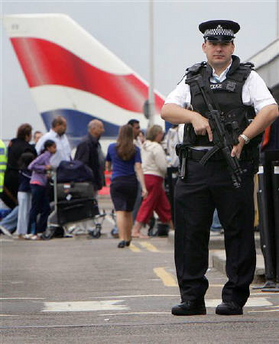UK eases airport security rules, liquids allowed
(Reuters)Updated: 2006-11-02 16:57
LONDON - Britain has agreed to partly lift its ban on liquids in hand luggage on airline flights from next week in a further easing of heightened security rules following a suspected plot to blow up airliners.
Details of the new rules, backed by the European Commission last month, were announced by Britain and UK airport authorities. Disruptions and delays caused by the security measures had been heavily criticised by airlines.
The United States partly lifted its ban on liquids in September.
"From 6 November passengers may carry a limited quantity of liquids i.e. gels, lotions, pastes, liquid cosmetics, foams and foodstuffs in their hand baggage when going through airport security checkpoints," BAA, which owns London's Heathrow, Gatwick and Stansted airports and is part of Spain's Ferrovial, said in a statement.
Under the rules the liquids must be in individual containers of 100 million or less. The containers must be placed in one transparent, re-sealable plastic bag, no larger than 20 cm by 20 cm. Passengers are allowed one bag.
Exceptions would apply for medicines and baby food or milk, BAA said.
The UK banned most liquids and set smaller limits on carry-on bags in August following what police said was a foiled plot to blow up US-bound airliners leaving Britain using liquid explosives. Some restrictions on hand luggage were eased in September.
BAA has said the changes forced it to spend an extra 13 million pounds (US$24.8 million) and British Airways estimated its lost revenues, the cost of hotel rooms for stranded passengers and of repatriating lost luggage after the restrictions were imposed in August at 40 million pounds.
Budget carriers Ryanair and easyJet also said they had lost money as a result of the disruption.
|
||
|
||
|
|

